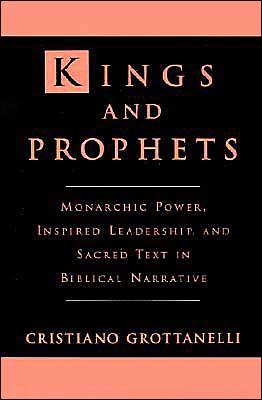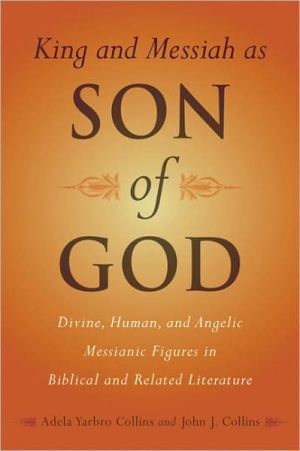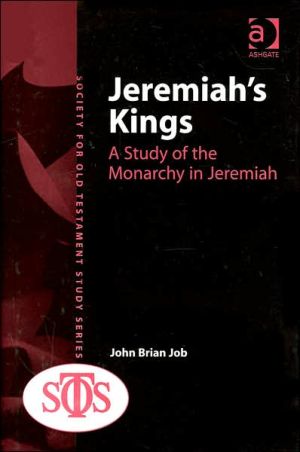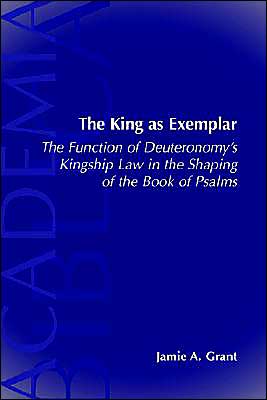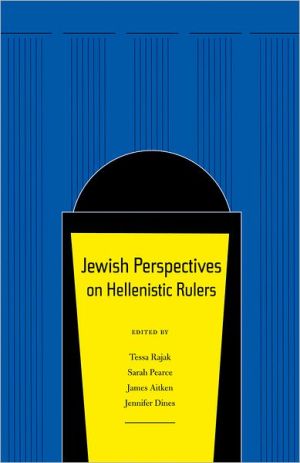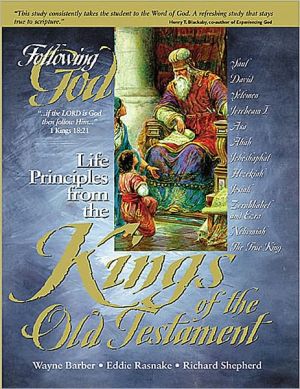Kings and Prophets: Monarchic Power, Inspired Leadership, and Sacred Text in Biblical Narrative
This collection of essays examines the respective religious and social functions of kings and prophets as they are presented in the biblical narratives. Biblical kingship is easily shown to be a specific instance of an ancient and widespread institution—sacred monarchy—that was the pivot of most state organizations throughout antiquity; prophetic authority is described as a typical institution of ancient Hebrew society. The difference between monarchy and prophecy is radical, because the...
Search in google:
This collection of essays examines the respective religious and social functions of kings and prophets as they are presented in the biblical narratives. Biblical kingship is easily shown to be a specific instance of an ancient and widespread institution—sacred monarchy—that was the pivot of most state organizations throughout antiquity; prophetic authority is described as a typical institution of ancient Hebrew society. The difference between monarchy and prophecy is radical, because the former implies a hereditary power and is upheld by its subjects who feed their kings with taxes, while the latter derives its authority from allegedly direct divine inspiration, and though it is also economically dependent it is not explicitly presented as being based upon systematic exploitation.Cristiano Grottanelli interprets the rise of prophecy as a consequence of a crisis of monarchical structures at the beginning of the Iron Age, and connects it to similar phenomena attested in ancient Greek texts derived from a similar crisis. Though monarchy finally won the day in the Ancient Mediterranean in a new imperial form, the new literatures in Greek and Hebrew consonantic and alphabetic scripts shaped nonmonarchic figures to which they attributed some of the functions previously pertaining to monarchy. These new literatures, produced by two cultures that were both highly literate and organized according to nonmonarchical principles, diverged radically in their development and final outcomes. In the Hebrew tradition, monolatry and an official canon of sacred writings were the final result; the prophetic principle was thus overcome by a new ideological construction, centered upon inspired scriptures rather than upon the impromptu performances of inspired persons. In using the prophetic principle against the monarchic, the canonical texts paradoxically shaped their own authority above that of living prophets.
AbbreviationsIntroduction31The King's Grace and the Helpless Woman: Ruth, Charila, Sita112Religious Ideals and the Distribution of Cereal Grains in the Hebrew Bible313The Enemy King Is a Monster: A Biblical Equation474The Story of Deborah and Barak: A Comparative Approach735Charismatic Possession and Monarchic Rationalization: The Folly of Saul876Specialists of the Supernatural in the Hebrew Bible1117Healers and Saviors of the Eastern Mediterranean in Preclassical Times1278Biblical Narrative and the Ancient Novel: Common Motifs and Themes1479Prophecy and Writing in the Ancient Near East17310Making Room for the Written Law185Index203
